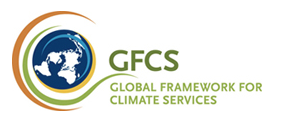The International Workshop on the Recovery and Digitization of Climate Heritage in the Indian Ocean Rim Countries and Islands convened in recognition of the need to accelerate the recovery of the region's historical climate records.
At the workshop, governments established the INdian Ocean Data REscue Initiative (INDARE), adopted a declaration and agreed to finalize an INDARE implementation plan.
 24 April 2014: The International Workshop on the Recovery and Digitization of Climate Heritage in the Indian Ocean Rim Countries and Islands convened in recognition of the need to accelerate the recovery of the region’s historical climate records. At the workshop, governments established the INdian Ocean Data REscue Initiative (INDARE), adopted a declaration and agreed to finalize an INDARE implementation plan.
24 April 2014: The International Workshop on the Recovery and Digitization of Climate Heritage in the Indian Ocean Rim Countries and Islands convened in recognition of the need to accelerate the recovery of the region’s historical climate records. At the workshop, governments established the INdian Ocean Data REscue Initiative (INDARE), adopted a declaration and agreed to finalize an INDARE implementation plan.
The workshop, which met from from 21-24 April 2014, in Maputo, Mozambique, also aimed to: inform on regional and international data rescue projects and activities and the potential to recover historical weather and climate observations from terrestrial and marine sources around and within the Indian Ocean basin; provide a forum to assess gaps, challenges and opportunities regarding accessing historical weather and climate data; and inform climate experts on data rescue and analysis methodologies and tools.
According to the World Meteorological Organization (WMO), in the Indian Ocean basin, an improved understanding of climate variability and climate change is stymied by the lack of climate data, which hampers generating weather and climate forecasts that can help in detecting, early on, extreme weather and climate events. WMO stresses that much data exists on obsolete media, with a substantial amount of the archives going back to the 19th century. As much of this is on paper and stored under poor conditions, the data must be recovered, imaged and digitized before it deteriorates and is unable to be used. Thus, INDARE seeks to rescue these data through modern archiving facilities, quick electronic imaging and digitization, and aims to promote the use of improved methodologies and techniques for analyzing climate data as well as the exchange of related scientific knowledge and technological advances.
In addition to previously mentioned issues, the declaration recognizes, inter alia, that improving climate data generating capacity is necessary for meeting user needs for high-quality data sets in such areas as agriculture and food security, water, health, disaster risk reduction (DRR), tourism, transport and energy. It also underscores: WMO efforts to provide state-of-the-art climate data management systems to standardize and modernize currently available systems; efforts to strengthen regional initiatives under the Global Framework for Climate Services (GFCS) to enhance linkages and information flows from the global to the national level and vice versa; the importance of enhanced integration of marine data, metadata and products from the atmosphere and the ocean to better understand the global climate system; and the need for improved capacity development through training, modern data management systems, software and guidance on modern data rescue, data management standards, and data analysis and visualization tools.
The declaration also identifies the following as critical for regional data rescue and digitization efforts: awareness raising of governments and decision makers on the importance of data rescue efforts for sustainable development and adaptation to climate change and variability; innovative training methods, such as train-the-trainer, twinning and longer-term support concepts; and the development of a sustained infrastructure for a registry of accomplished and outstanding data recovery records. Delegates and participating organizations agreed to work collectively to establish the INDARE initiative and finalize its implementation plan as proposed by the workshop’s scientific committee. Workshop participants included representatives of Mozambique, Madagascar, Seychelles, Maldives, Mauritius, Tanzania, Kenya, Yemen, Pakistan, Sri Lanka, Myanmar, Spain, the US, the UK, Germany, Sri Lanka and Myanmar.
WMO underscores that INDARE will be fundamental for advancing the GFCS in the region, as the rescued climate data would, ideally, then be made available for use in research and for generating high-value climate products and services. WMO is helping governments develop and use such climate services through the GFCS. [WMO Press Release] [Workshop Website]